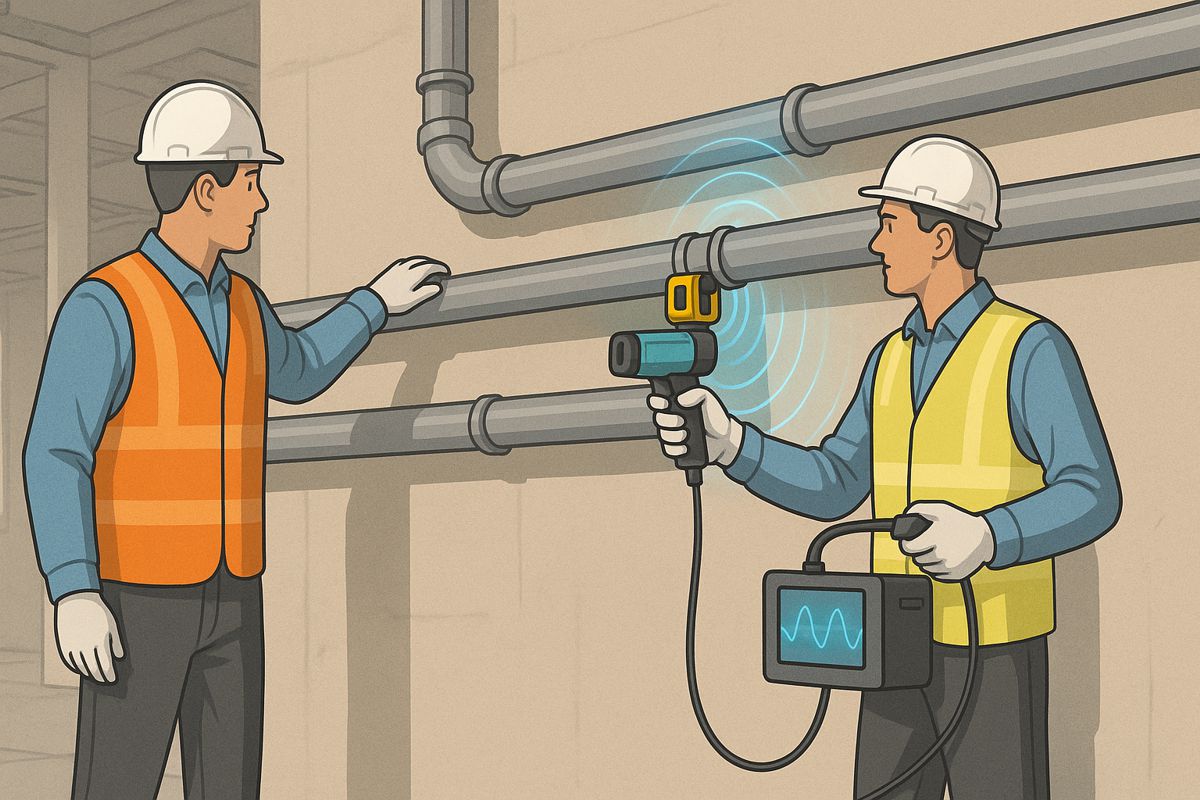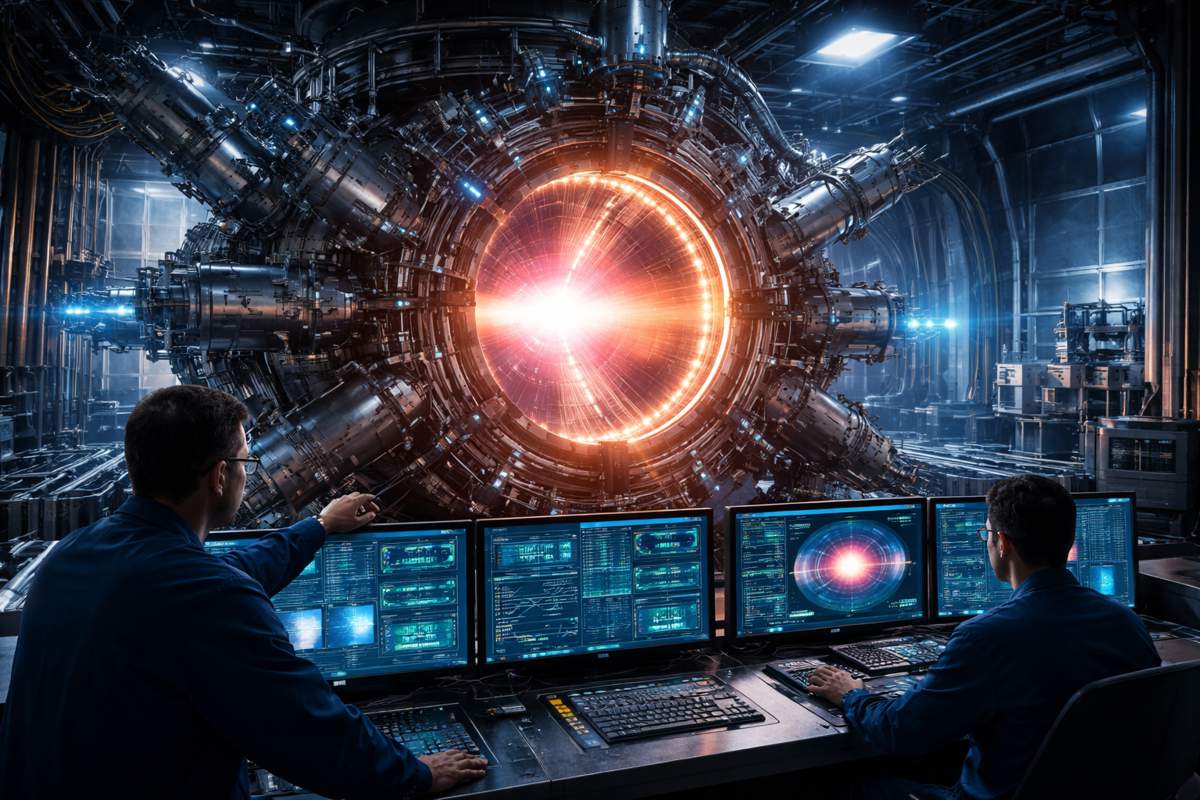Startup Launches Gamma Ray Plumbing Pipe Scanner in Thailand
Clogged pipes are a universal headache. From apartment blocks to sprawling office complexes, discovering exactly where and why a blockage exists is rarely straightforward. Too often, the hunt for the culprit involves ripping up walls, floors, or ceilings—costly, messy, and time-consuming.
But what if you could see through pipes as easily as a doctor reads an X-ray? That’s precisely the opportunity spotted by Mr. Suphanut Leelapamornkij, an alumnus of Chulalongkorn University’s Department of Nuclear Engineering. His solution harnesses gamma ray technology to pinpoint and identify obstructions without causing a single scratch to the surrounding surfaces.
Suphanut has transformed this idea into Radiation Testing Co., Ltd.—Thailand’s first and only company offering gamma ray-based sanitary and fire prevention pipe inspections for residential and commercial clients.
“These are everyday life problems, but no one has taken the initiative to solve them. And this business has no competitors yet. If I don’t seize the opportunity, it will be a pity because this is my field of expertise,” he said.
From classroom concept to commercial success
The seed for this business was planted during a Non-Destructive Testing (NDT) class, where Suphanut learned how gamma rays were used in the oil, gas, and manufacturing industries to detect leaks or blockages. He realised the same principles could be applied domestically, offering a faster, safer, and more accurate solution.
Hands-on experience at the university’s Open House deepened his understanding. Working with early gamma ray scanning prototypes for tree inspections, he noted their limitations and began envisioning more portable, versatile designs. By the time he graduated in 2024, Suphanut had both the technical know-how and a clear business plan.
“All I had to do was make a decision and begin—that’s all! Since everything is ready, I decided to go for it,” he said.
How gamma ray pipe scanning works
The technology behind Radiation Testing’s system is based on the Gamma Transmission principle, similar to how a lung X-ray works. Radiation passes through the pipe, and the resulting image highlights differences in density:
- If there’s no blockage, more radiation passes through, registering as a baseline.
- Dense materials, like mortar, allow less radiation to pass, creating bright spots on the scan.
- Lower-density materials, such as sand or organic debris, produce different readings.
By comparing these values, the team can pinpoint the blockage’s exact location and identify what’s causing it. Suphanut explained: “After visiting the actual site, we can tell the exact location of the blockage up to the centimetre level.”
Tools of the trade
Radiation Testing Co. has developed two key devices for their work:
- Blockage Detector – A cuff-like device moved along the pipe’s exterior. It uses a colour-coded scale: green for clear pipes, yellow for partial blockages, and red for critical obstructions.
- Blockage Level Meter – Measures the blockage height and identifies material type based on density, helping clients choose the most appropriate removal method.
For pipes hidden behind walls, ceilings, or underground, the company employs a specially designed endoscope camera capable of reaching up to 5 metres, with plans to extend this to 25 metres.
Tailoring equipment for every job
Every building presents unique challenges, from pipe layouts to access restrictions. Suphanut’s team adapts their tools on-site, carrying spare components to quickly modify mounting beams and couplers.
When pipes can’t be accessed from the ideal 180-degree angle, the team experiments with 130, 120, or even 90 degrees to ensure accurate readings—a solution developed in consultation with professors from Chulalongkorn University.
Beyond pipes: Trees and heritage structures
Gamma ray scanning isn’t just for plumbing. Radiation Testing also offers:
- Tree cavity inspections – Essential for assessing stability in urban landscaping.
- Column strength analysis – Critical in heritage conservation, where replacing original materials is a last resort.
One recent project involved scanning wooden columns in a 400-year-old temple in Phetchaburi province, where a heavier modern roof threatened the original structure. The non-destructive scans guided preservation work, helping the Fine Arts Department protect the historic building.
“We must inspect it thoroughly,” Suphanut noted, underscoring the responsibility involved in cultural heritage projects.
Addressing safety concerns
The mention of radiation often sparks public worry, but Suphanut is clear about safety: gamma ray scanning, when managed correctly, is harmless to operators and building occupants. His nuclear engineering training ensures strict adherence to safety protocols, with every scan planned to minimise exposure.
“When people hear the words ‘radiation’ and ‘nuclear,’ they think of ‘danger.’ But it’s really like a coin with two sides—there are pros and cons. It’s up to us to pick the right thing to use,” he explained.
A growing industry with untapped potential
While nuclear and radiation applications are widely used in industries abroad, Thailand has been slower to adopt such methods due to a shortage of expertise. Suphanut sees this as an open field for innovation.
“If we have enough expertise, knowledge, skills, and ideas, it’s a great opportunity to grow this business before anyone else,” he said.
In the future, he plans to expand Radiation Testing’s scope to cover all forms of industrial and household digital radiation detection.
A clear vision for the future
Suphanut’s journey from student to entrepreneur shows how academic knowledge, practical experience, and a readiness to seize opportunities can translate into a thriving business. By focusing on non-destructive, accurate, and adaptable technology, he’s positioning his company at the forefront of Thailand’s emerging nuclear inspection industry.
As he puts it: “Once you start, you have to do your best.”





























